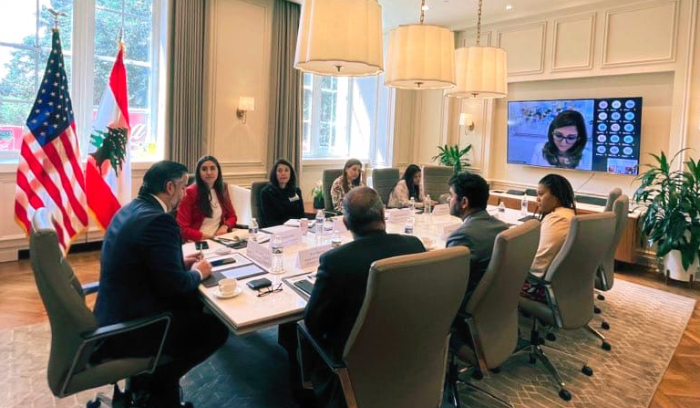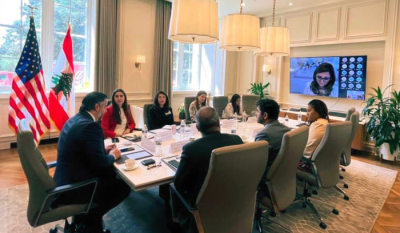The Minister of Economy and Trade in the caretaker government, Amin Salam, stated during his meeting at the American Chamber of Commerce with representatives of the American private sector, as part of his visit to Washington, that "the reality of the difficult economic and financial situation does not negate the existence of many fields and opportunities for American private sector investment." He encouraged the need "to take this step for the benefit of both countries, with French investments in sectors like energy and maritime facilities being a good example."
He continued: "The truly sad reality is the absence of comprehensive legislative reforms, preferably as part of an International Monetary Fund program, due to intense political disputes and power struggles for narrow and unpatriotic interests, while the whole world is watching. If political parties do not make a swift decision to rescue the country, Lebanon's economic and financial future in the short and medium term will be grim, jeopardizing its potential as a destination for foreign investment."
Salam noted that "the situation depends on how economic and governance reforms, which have long been awaited, are implemented, attracting international assistance and foreign investment, stabilizing the exchange rate, recapitalizing the financial sector, and restructuring the banking sector. These are essential reforms that require seriousness and time, but they can be accompanied by massive investments in basic infrastructure such as energy, water, transport, health, and environment."
He pointed out that "Lebanon still enjoys the legal foundations for a free market economy, including the newly approved competition law, an educated and diverse workforce, limited restrictions on investors, and more than 225 kilometers of coastline along the Mediterranean Sea with significant natural gas reserve potential, making it one of the best tourist destinations in the Middle East and North Africa."
Salam indicated that "the most attractive sector is the energy sector, especially regarding renewable energy production and oil and gas exploration, although challenges remain due to corruption and lack of transparency. Historically, tourism, information technology, communications, healthcare, and safety and security have attracted foreign investments and remain appealing today despite all the challenges facing the country. Promising opportunities will remain for international companies and investors, especially Americans, due to their well-known ability to invest in challenging and unstable conditions."
He emphasized that he is "regularly communicating with international investors, striving to maintain a positive future vision, particularly with Lebanese expatriates who are considered potential major investors. Their concerns include over-regulation, arbitrary licensing, outdated legislation, ineffective courts, high taxes and fees, weak infrastructure, and a deteriorating banking system. These are reforms that can be worked on quickly to attract investments from Lebanese expatriates in the initial stage of development and recovery."




